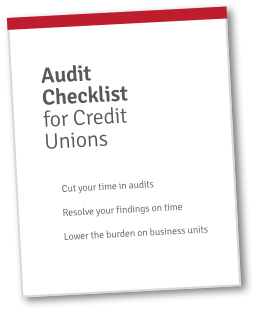These are their stories.
The identities of the participants have been protected.
The Recession Is a Theme Here
One aspect of fallout from a countrywide economic collapse is that it affects many credit unions. In our last installment of these NCUA Audit Nightmares, we have another recession-era SNAFU.
We’ve seen before how, when you’re an auditor during a subprime mortgage crisis, every mortgage looks like an unsecured loan. In fact, most of the audit nightmares we filmed happened during the recession.
It makes sense, considering all the rules people had theretofore followed proven too lenient. When the rules prove insufficient, the auditors prove significantly more rigorous.
What’s frustrating, though, is when their new recommendations contradict their old ones.
“That’s Too Much Reserve!”
For almost ten years prior to that one fateful exam, What’s-His-Face’s credit union kept a healthy store of cash to cover their debts. They wanted to make sure their loans were covered. Year after year, the NCUA’s refrain was, “cut down your reserve! Cut down your reserve!”
They cut it down. Every year, they cut down their reserve to try to meet the NCUA’s guidance. They got as close as they could without sacrificing what they felt was a safe level of loan loss prevention.
R.I.P. Good Money
What’s-His-Face was chairman of the board during the peak of the financial crisis. They had been shaving off their reserve every year to keep in line with the NCUA’s recommendations.
Meanwhile, loans all around them were going south. Financial institutions were struggling to cover the cost of their failed mortgages with what little reserve they had left.
What’s-His-Face was doing fine. With plenty of money to spare. So, the NCUA claimed it to cover the costs of what they saw as bad real estate loans. They lost five million dollars.
Are These Numbers Normal?
Part of the issue of working in a not-for-profit industry is making sure that you can balance your finances. In many instances, keeping a sizeable reserve looks a lot like profit. However, so long as you’re not keeping that profit from your members, you’re on the right track.
What’s-His-Face’s credit union never took their reserve from the credit union. They knew they had an aggressive loan portfolio and they kept their numbers in line to cover any losses in the event of an economic collapse. And that’s when the auditors struck.
Let’s Be Real, Though
The NCUA did nothing wrong, per se. It was a harsh blow to a credit union with a valuable loan portfolio. Nevertheless, they were looking after the overall health of the industry as well as the finances of one credit union.
Losing five million dollars is rough for all but the richest among us. It can seem a lot like a punishment to people who are just keeping a healthy reserve for when things go south.

FREE: Audit Checklist for Credit Unions
4 key principles and 9 questions to jumpstart your audit planning. From leading credit unions.Okay, So What Happens When My Audit Goes South?
Regardless of your past experience, credit union exams can throw curveballs your way. Some, like the above, may be unavoidable even with demonstrable compliance. Others can be avoided with good planning and great audit tools.
What’s-His-Name from the story had audit experience and a strong portfolio, but that isn’t always enough. In fact, the strength of his portfolio was his undoing in the end. Perhaps there’s no pleasing some people.
Well, that’s not exactly true. Most auditors can be pleased by good preparation and clean finances. One of the best ways to keep your auditors happy are with credit union compliance software and audit tools. We do our best to provide resources for credit union external audits and examinations, and our blog is filled with tips and tools to keep you from failing to deliver during your next external audit.
You can read our article on 3 common credit union risks and how to address them. Then, you can check out our NCUA Audit Checklist to see if you’re ready for your next external audit.






